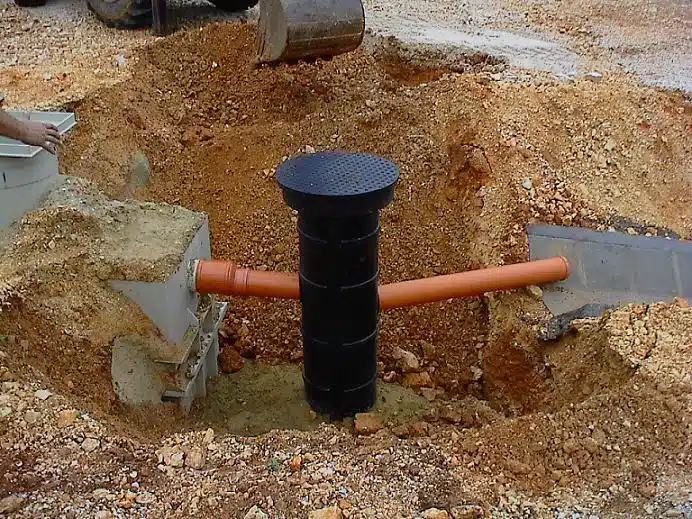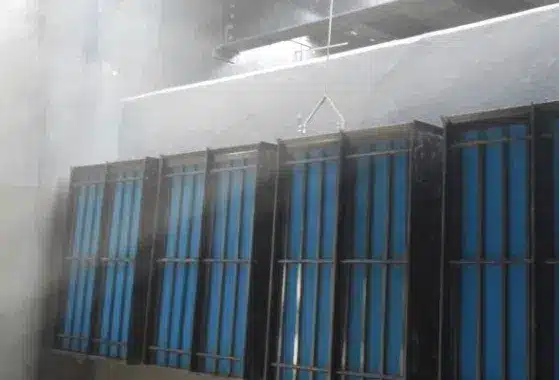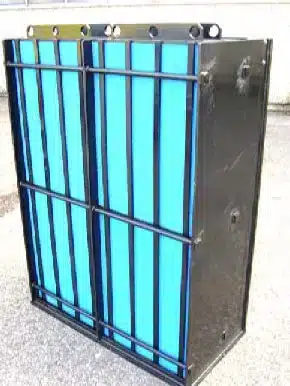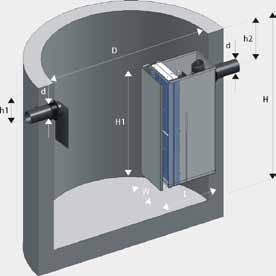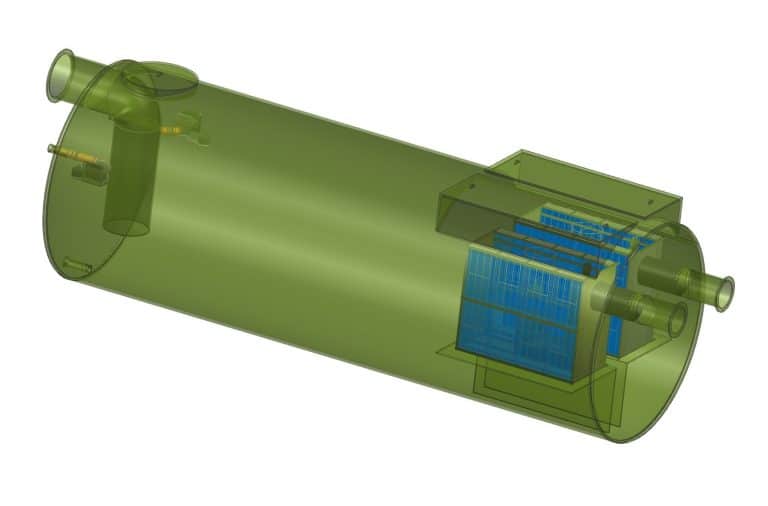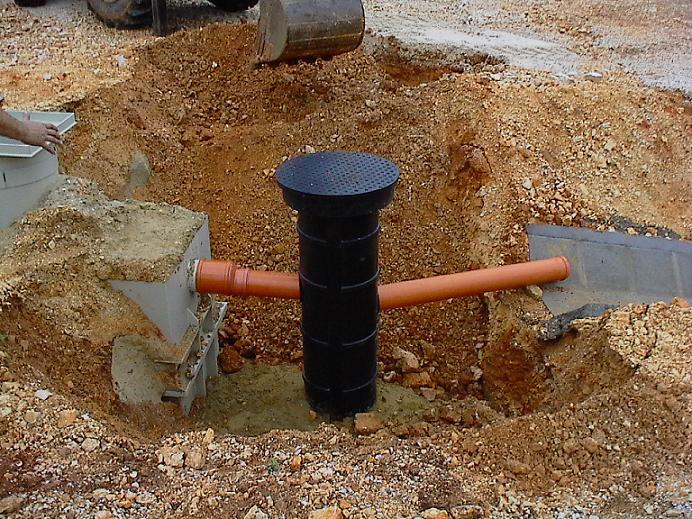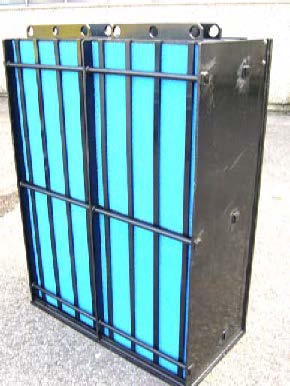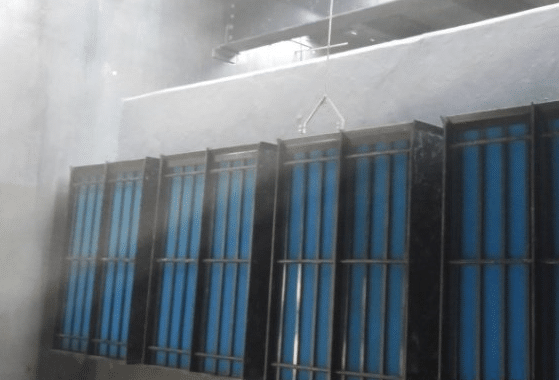Have you ever thought about what’s hidden beneath Michigan’s industrial areas? It’s the Michigan Below Ground OWS systems, working hard to protect our groundwater. These systems are key to keeping our state’s environment safe, but many don’t know how important they are.
Michigan Below Ground OWS are essential for Michigan’s wastewater treatment. They work hard to keep harmful substances from reaching our soil and water. Thanks to strict rules on Michigan underground tanks, these separators are vital for keeping nature in balance.
Freytech Inc. is leading the way in oil water separation technology. Their systems can remove up to 5 PPM of contaminants, beating North American standards. This is crucial for keeping Michigan’s groundwater safe from pollutants like motor oil and jet fuel.
Key Takeaways
- Michigan Below Ground OWS systems are vital for industrial wastewater treatment
- Below Ground Oil Water Separators protect Michigan’s groundwater resources
- Advanced technology can achieve separation efficiencies of 5 PPM or better
- These systems can handle various hydrocarbons, including motor oil and jet fuel
- Strict regulations govern Michigan underground storage tanks
Understanding Michigan Below Ground OWS Systems
Michigan’s industries heavily use Below Ground OWS systems to handle wastewater. These systems are key to keeping the environment safe and following the rules in many sectors.
What are Below Ground Oil Water Separators?
Below Ground OWS are devices put under the ground to take out oil, grease, and light petroleum from wastewater. They are vital for Michigan’s underground fuel tanks and other places that deal with oil-contaminated water.
Importance of OWS in Michigan’s Industrial Landscape
Michigan’s wide range of industries, like big oil storage and car repair shops, count on Below Ground OWS to clean wastewater before letting it go. These systems are a big part of Michigan’s underground setup, keeping water safe and meeting environmental rules.
Regulatory Compliance and Environmental Protection
Below Ground OWS in Michigan aim to follow or beat EPA rules, making sure the water that’s let out has less than 10 parts per million of oil. This strict rule helps keep Michigan’s waterways clean and shows the state’s care for the environment.
Traditional Installation Methods for Below Ground OWS
The setup of underground oil water separators in Michigan has always used subterranean vault methods. These systems are key in handling industrial wastewater and keeping the environment safe. Let’s look at the traditional ways and their problems.
Subterranean Vault Installations
In Michigan, oil tanks go into large concrete vaults buried under the ground. This setup saves space and keeps the tanks safe from surface issues. The process includes digging, building the vault, and placing the separator units carefully.
Safety Concerns and Confined Space Challenges
Working with underground systems in Michigan is risky. The tight spaces of vaults are dangerous for workers during setup and upkeep. They face dangers like low oxygen, gas buildup, and limited movement, which can lead to accidents.
Maintenance and Accessibility Issues
Getting to underground OWS for regular upkeep is hard. You need special gear and trained people to go into tight spots. This makes maintenance costly and complex. Many places are now looking at above-ground options for better safety and easier upkeep of Michigan underground oil tanks.
Emerging Trends: Above-Ground OWS Solutions
A new trend is changing Michigan’s underground water storage systems. Above-ground oil water separators (OWS) are becoming more popular. They are like the ones used for backflow preventers and water meters. This change is great for industries that use Michigan’s underground pipeline networks.
Freytech Inc., a company from Michigan, has created a new above-ground OWS solution. They use Safe-T-Cover pre-fabricated heated enclosures for these systems. These enclosures protect the OWS from freezing, bad weather, and vandalism. They also make it easy to access the system for maintenance.
Putting in above-ground systems is much quicker than the old ways. For example, one project was done in just two weeks. This is a big win for industries that need quick and efficient solutions. It also makes the work area safer for maintenance workers.
As industries adopt these new trends, Michigan’s underground water storage is changing. Above-ground OWS solutions are making things more efficient, safe, and easy to get to. This new technology is expected to change how industries handle water separation in Michigan.
Michigan Below Ground OWS: Design and Construction
Michigan’s below ground oil water separators (OWS) come in various designs to meet different needs. These systems are key in monitoring Michigan soil contamination and managing underground storage tanks. Let’s look at the main types available in the market.
Precast Concrete Models: SOCMP and CMP
The OilTrooper® SOCMP and CMP models are top picks for vehicle maintenance facilities and industrial sites. They are made with precast concrete and have multiple compartments and internal baffles. These features help separate oil from water, preventing soil contamination in Michigan.
Fiberglass Options: Model CMPF
The CMPF model is a compact fiberglass option for sites that need regular tank pumping. It’s lightweight and easy to install and maintain, perfect for smaller Michigan underground storage tanks. Its durability means it protects against soil contamination for a long time.
Steel Basin Designs: Model AQS
The AQS model offers flexibility with its single or double-wall steel basin. It can be buried or installed freestanding, fitting various site conditions. Like other models, it has coalescing media and piping systems. The AQS also has an interceptor maintenance alert system. This ensures timely upkeep for the best performance in Michigan’s soil contamination monitoring.
These separators are crucial in storm water systems. They process runoff to meet the US EPA’s Clean Water Act standards. With effective oily water treatment, facilities protect the environment and dodge big fines.

